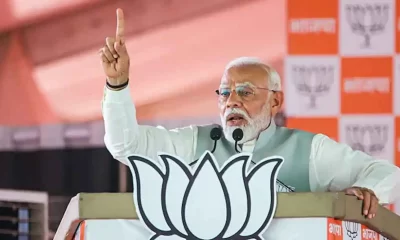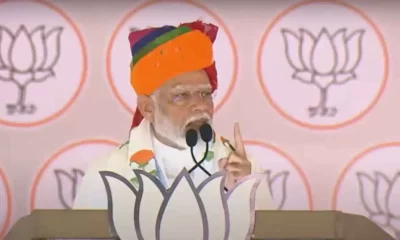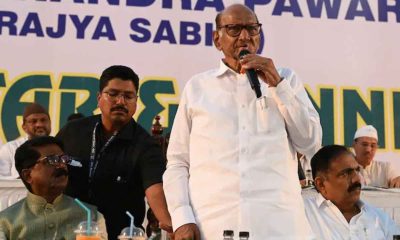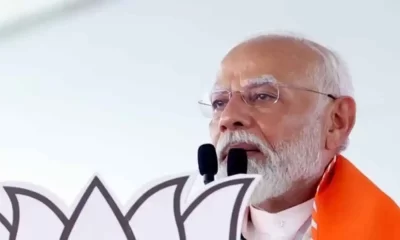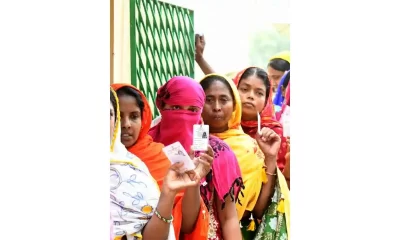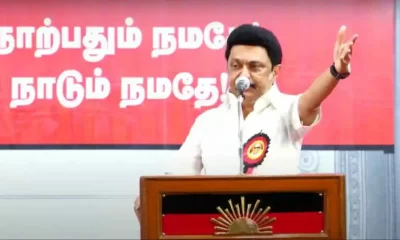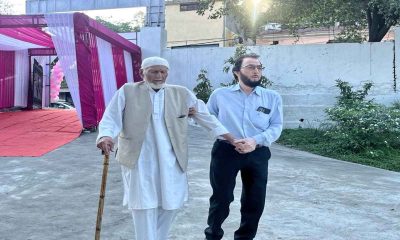India News
Rafale review plea: Govt wants it rejected as documents confidential; SC says what about Bofors
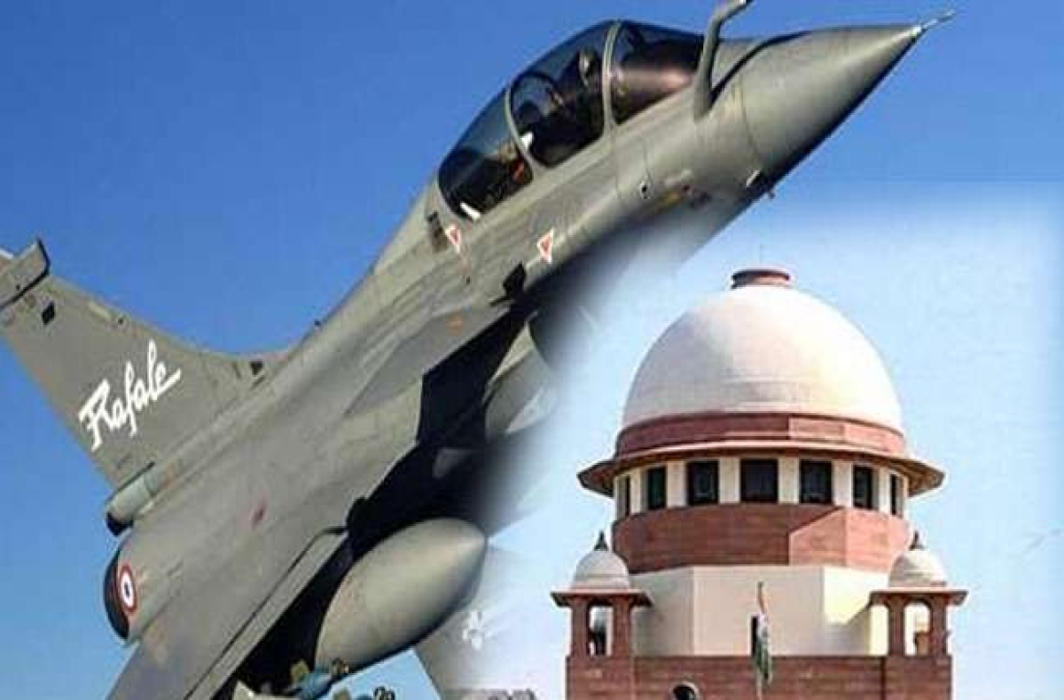
It was interesting to find the country’s top law officer argue that a plea, seeking review of a judgment on the ground that the government had misled the court, be rejected because the documents to prove this were stolen and violated the Official Secrets Act.
That, incidentally, was the only legal provision cited by Attorney General KK Venugopal who went on to cite national interest, national security, urgency of the need for Rafale fighter aircraft and the undesirability of investigating defence deals.
In the hearing on the review petition started today (Wednesday, March 6), the Attorney General’s contention evoked a sharp response from the Supreme Court, which said that similar circumstances existed in the Bofors scam trial and if the Centre’s claims were to be accepted, should all cases linked with the infamous scam of the 1980s be shut down too.
As the Supreme Court bench of Chief Justice Ranjan Gogoi and Justices Sanjay Kishan Kaul and KM Joseph started hearing the bunch of petitions seeking review of its December 14 verdict which had ruled out a court-monitored probe into the Rafale deal, the Attorney General said that the documents on the basis of which the review has been sought were “inadmissible as evidence” as they were “stolen from the Union defence ministry” and were protected under the Official Secrets Act.
Arguing that the documents published by The Hindu newspaper and another one shared by news agency ANI were not supposed to be in the public domain, Venugopal sought to raise the bogey of national interest and the threat of war to present his case against the review petitions.
In a veiled reference to the recent escalation of tensions between India and Pakistan following the Pulwama terror attack, the Attorney General said: “Recent incidents have shown how vulnerable we are. When others have superior F16 aircraft, should we also not buy better aircraft?”
It may be recalled that in the aftermath of the Indian Air Force’s strikes at a terror camp in Pakistan’s Balakot, the Pakistan Air Force had responded by an attempted attack on Indian territories in Kashmir using F-16 fighter jets. Shortly after, Prime Minister Narendra Modi had claimed at a public rally that the outcome of the escalation with Pakistan would have been “very different if India had Rafale jets.”
Venugopal proceeded to tell the court that a CBI inquiry into the alleged irregularities in the negotiations with the French government and Dassault Aviation for the Rafale fighter jets will damage the country. He added that given the prevailing circumstances, there was an “urgency to procure Rafale jets” as they are “needed to protect the country against F-16s” and that pilots had “already been sent to Paris for training to operate the jets.”
“If CBI probe is directed now, the damage done to the country will immense,” Venugopal told the court while asserting that the publication of the “secret documents” related to the Rafale deal negotiations by The Hindu had damaged India’s image globally.
As Venugopal began to detail India’s need for Rafale jets to fight against Pakistan’s F-16 fleet, Chief Justice Ranjan Gogoi intervened to tell him that he must confine his arguments on the maintainability of the review petitions.
As Venugopal began, once again, to enumerate how the documents relied upon in the review petitions were “inadmissible” as they had been “procured through unfair means” in violation of the Official Secrets Act, he was interrupted once again, this time by Justice KM Joseph.
“Issue of national security doesn’t arise when question in review is that plea of investigation hasn’t been considered. Are you going to take shelter under national security when the allegations are of grave crime, corruption,” Justice Joseph asked the Attorney General pointedly.
He added that the legal precedent with regard to admitting “stolen” documents as evidence was settled under the Evidence Act and said further that “if an act of corruption is committed, government cannot take shelter under the Official Secrets Act.”
Venugopal sought to rebut Justice Joseph’s observation, saying: “Your Lordships might have your view on it (admissibility of such documents) but I have a different view.”
He went on to make a rhetoric submission: “Certain issues are outside the purview of judicial review. Do we have to come to the court to justify when we declare war, when we declare peace? Do we have to come and seek permission of the court every time?”
He also sought to know the “source” of the documents that the petitioners have relied upon while filing the review pleas. “Relevancy of the papers can’t be sole consideration (for allowing a review)… they must say whether retired or present officers did it (leaked the documents)… How did the petitioners get privileged documents of defence ministry,” Venugopal said.
The Attonery General’s voluble submissions provoked a pointed query from Chief Justice Gogoi who asked: “If an accused establishes the plea of alibi on the basis of a stolen document, should the court ignore it… Show us the authority that (disclosing the) source is important.”
The Chief Justice then noted that while violating the Official Secrets Act “makes a person liable for criminal punishment for obtaining secret documents”, courts or petitioners can “proceed against the person but will the document become null?”
With Venugopal refusing to step back from his line of argument, Justice Joseph remarked: “There were allegations of corruption in Bofors. Now, will you say the same thing that a criminal court shouldn’t look into any such document in that case? Here we have an open system.”
Venugopal sidestepped Justice Joseph’s query: “Yes, we have an extremely open system here. This is the only country where a court is examining a defence deal as if it is an administrative issue. No other court in any other country will do it.”
Perhaps perturbed by the Attorney General’s defiance, Justice Sanjay Kishan Kaul too joined the other judges on the bench to question Venugopal. “The documents having come before us, you can’t say that we cannot look into them,” Justice Kaul said.
Venugopal then fell back on his earlier line of dramatic arguments, stressing that the Rafale “purchase is essential for the survival of this nation against enemies.”
This brought an even more pointed rebuke from Justice Kaul who told the Centre’s chief law officer: “if the documents were stolen, the government should put its own house in order. It is one thing to say that we should look at these documents with suspicion. But, to say we can’t even look at those documents may not be a correct submission in law.”
Chief Justice Gogoi too remarked: “If your submission is that petitioners have not come bona fide, then that is different but can you say that the document is completely untouchable… it is a far stretched an argument.”
The Chief Justice even cited an example to the Attorney General, stating: “an accused is having difficulty in proving his innocence. He steals a document and shows it to the judge. The document clearly shows he is innocent. Should a judge ignore the document?”
Venugopal then sought to revive his arguments on the damage that would be caused to the country if the court conceded to the demand of reviewing its December 14 verdict. “Every statement by this Court is used to destabilise either the government or the opposition. Why should the court become a party to such an exercise? This is why I am appealing to this Court to exercise restraint. Defence procurements can’t be judicially examined,” the Attorney General appealed.
As Venugopal reiterated that documents made public by The Hindu and ANI were “stolen”, the bench asked him if the “head of (the concerned) department in the Ministry of Defence can file an affidavit” affirming this stand. The Attorney General then told the court that the affidavit will be filed on Thursday (March 7).
The court then heard brief submissions from the counsel for one of the main petitioners, former BJP leader Yashwant Sinha. Sinha’s counsel submitted that Venugopal’s claim that the documents produced as part of the review petition are inadmissible “is not correct” and went on to cite how the apex court had admitted supposedly confidential documents provided by him as evidence in earlier cases filed by him related to the alleged professional misconduct and corruption of former CBI director Ranjit Sinha and in petitions related to the 2G spectrum and coal allocation scams.
The Chief Justice then told Sinha’s counsel: “If we accept the Attorney General’s arguments (on inadmissibility of documents), we reject these documents and hear your review petition minus these documents and if, we reject his submissions, we will then see how these documents are relevant to decide the review petitions.”
The bench then adjourned the proceedings for the day. It has directed the matter to be listed for further hearing on March 14, at 3 PM.
Earlier, as the three-judge bench, which had delivered the December 14 judgment, began hearing the review petitions, counsel for former Union finance minister Yashwant Sinha, the most high profile petitioner in the case, urged the court to rap the Centre for perjury.
Stating that the December 14 verdict did not go into their prayer for a court-monitored investigation into the Rafale deal but looked at prayers made by other petitioners – advocates ML Sharma and Vineet Dhanda – for cancellation of the deal, the counsel for Sinha argued that the real question before the court is whether their complaint warranted a probe.
Placing reliance on a set of documents related to the Rafale deal and the negotiations between the Indian and French sides that preceded it but which came in the public domain after the December 14 verdict, Sinha’s counsel said the apex court had relied upon “a large number of serious errors of fact” while dismissing the prayer for a probe into the deal.
“Those facts were presumably supplied to the court by the Centre in sealed cover notes…Critical material facts were suppressed from the court… the government should be hauled up for perjury,” Sinha’s counsel said.
He then proceeded to place reliance on an eight page note, primarily related to matters that have come in the public domain as part of investigative news reports published by The Hindu newspaper over the past two months.
These reports were sourced from information gathered through files purportedly leaked from the Union defence ministry and highlighted the following details: a) contrary to the Centre’s submission before the apex court, the Prime Minister’s Office interfered with and possibly influenced the outcome of the negotiations with the French government on the Rafale deal even though an Indian Negotiation Team (INT) of the Union defence ministry was formed for the specific purpose, b) the Indian government waived the sovereign guarantee clause finalized during earlier negotiations between the (INT) and Dassault Aviation thereby causing a windfall gain for the fighter jet manufacturer at the cost of the Indian exchequer, c) members of the INT had objected to the interference by the PMO in the negotiation process.
Further, the review petitions also place reliance on the fact that while the apex court’s December 14 verdict had given a clean chit to the Rafale deal on grounds that it had been cleared by the Comptroller & Auditor General and that the auditor’s report had been accepted by a Parliamentary panel, the C&AG report on the Rafale deal had not been finalized and presented before Parliament before February 13- i.e. two months after the top court’s verdict.
Attorney General KK Venugopal, appearing for the Centre, however, objected to the mentioning of the leaked documents on grounds that they were part of a file that had been stolen from the Union defence ministry and were, in fact, protected under the Official Secrets Act.
Venugopal said the first article by the senior journalist appeared in The Hindu on February 8. Wednesday’s The Hindu report was aimed at influencing the proceedings and that amounted to contempt of court, he said.
While Venugopal was seeking dismissal of the review petitions and raising objections to petitioner’s arguments based on the articles published in The Hindu, the bench sought to know from the Centre what has it done when it is alleging that the stories are based on stolen material.
The AG also submitted that the documents on the deal relied on by the petitioners were marked secret and classified, and therefore, are in violation of Official Secrets Act.
Sinha’s counsel said critical facts on Rafale were suppressed when the petition for an FIR and investigation were filed.
He said that the top court would not have dismissed the plea for FIR and probe into Rafale deal had there not been suppression of facts.
However, Venugopal said the documents relied upon in the petition were stolen from the Defence Ministry and an investigation into the matter was underway.
2024 Lok Sabha Elections
Lok Sabha elections 2024: 102-year-old man walks to polling booth to cast his vote in Jammu
The lowest voter turnout so far was noted in Ramgarh at 1.53%.
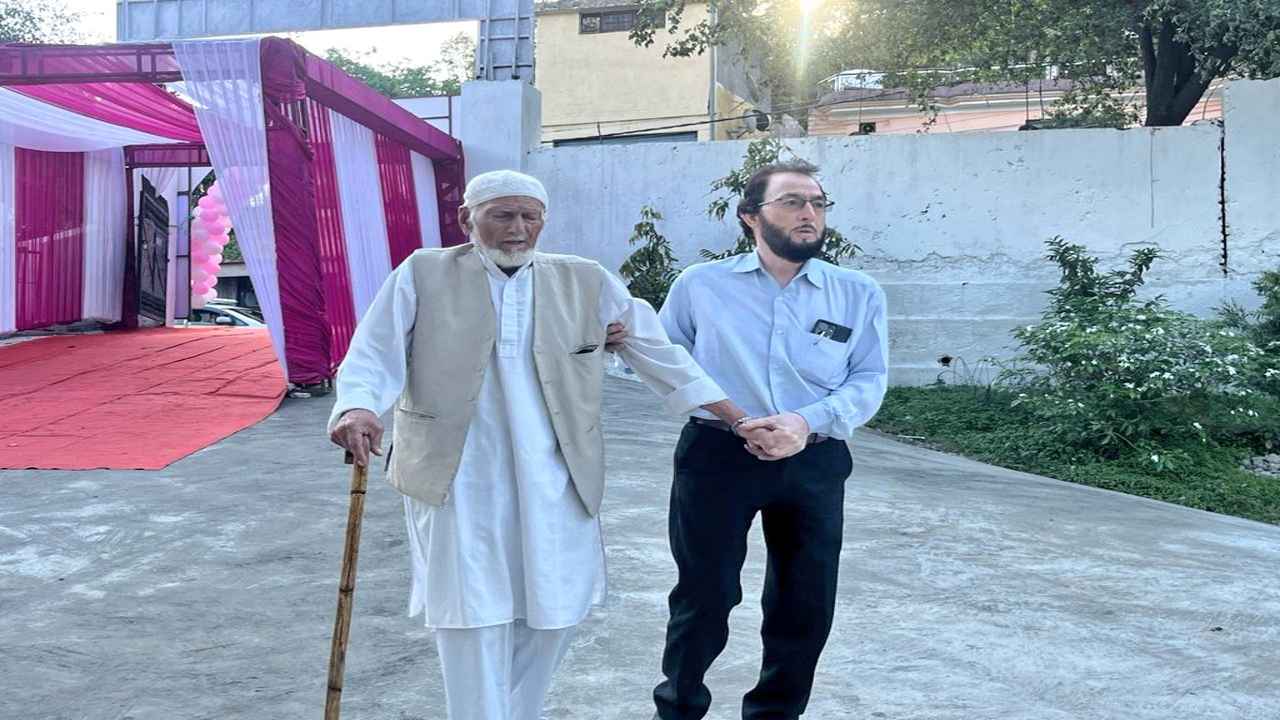
A 102-year-old man showed up at a Jammu polling place to cast his vote in the second phase of the Lok Sabha elections on Friday. Haji Karam Din arrived at the Reasi district polling place in the Jammu constituency with a walking stick in hand and a family member who assisted him with the pre-voting process.
Haji Karam Din, who is 102-year-old, showed his inked finger and posed for pictures outside the polling booth after casting his vote. He said voting at this polling place at this age makes him very happy. He has always cast his vote. Even at the age of 102, this experience is still ongoing, he said.
Reasi district is a part of the Jammu parliamentary constituency, and 22 candidates are up for vote with around 17.81 lakh eligible voters.
BJP’s sitting member Jugal Kishore Sharma is aiming for a third term in office following wins in the elections of 2014 and 2019. Former minister and Congress candidate Raman Bhalla is his main opponent.
Voting in the Jammu-Reasi Lok Sabha constituency began with eager voters showing up at the polling places. Some of them were wearing traditional Dogra attire.
In 2,416 polling places around the constituency, voting got underway at 7 a.m., and 10.39% of the total votes were cast by 9 a.m. In the 2019 Lok Sabha elections, Jammu recorded a 74% voter turnout.
Following the repeal of Article 370 and the division of the former state into two Union Territories five years ago, this is Jammu’s first significant election.
The Akhnoor segment received the highest percentage of votes, 14.24%, followed by Reasi (14.13%), Gulabgarh (13.53%), Shri Mata Vaishnodevi (12.71%), Marh (12.31%), Samba (8.56%), R S Pura Jammu South (8.17%), and Suchetgarh (5.67%), according to the officials. Ramgarh recorded the lowest voter participation of 1.53% so far.
Low attendance was observed in the border areas of the districts of Jammu and Samba till nine in the morning, according to poll data.
The officials said that big lines of voters were observed at several polling places throughout Jammu city. Voters were observed heading towards polling places early in the morning.
India News
Salman Khan house firing case: NIA interrogates arrested shooters Sagar Pal, Vicky Gupta for three hours
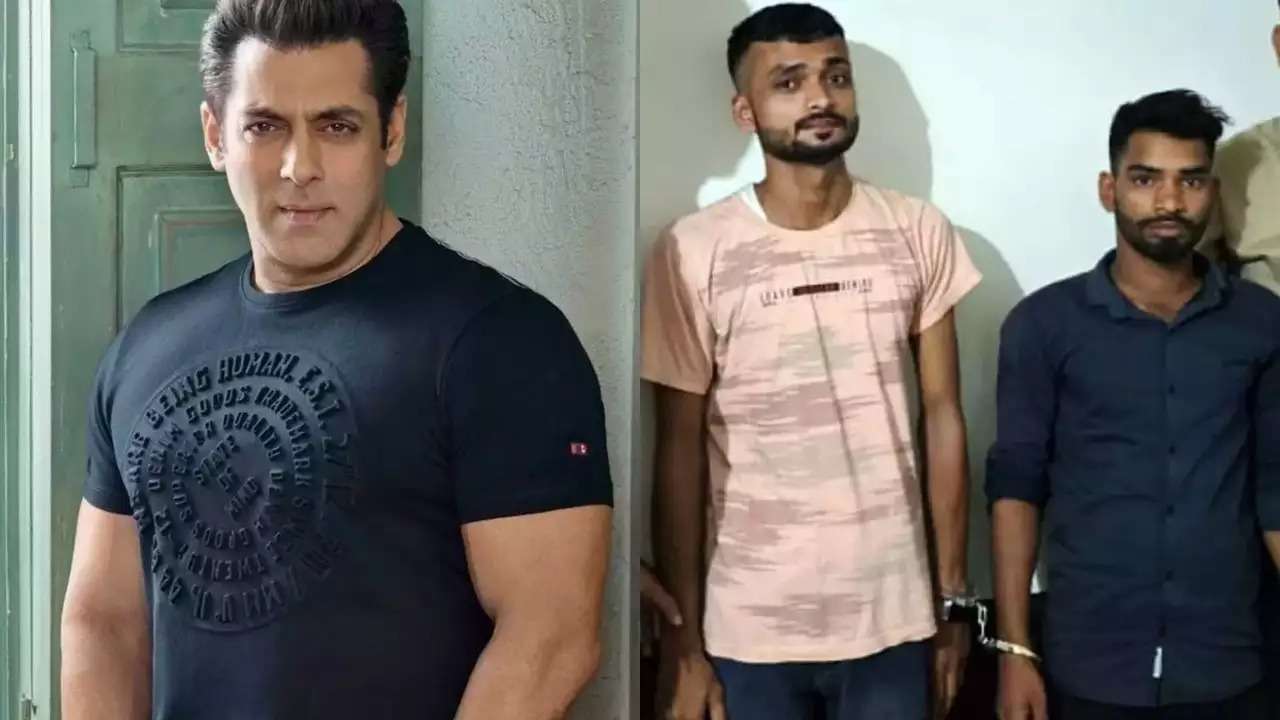
The investigation into the shocking firing incident that took place outside Salman Khan’s house on April 14 keeps bringing new updates with every passing day. In this case, Sagar Pal and Vicky Gupta, the two suspected shooters, have already been taken into custody.
The two shooters have reportedly been questioned by the National Investigation Agency (NIA), according to a new development. Every day that goes by, more information is revealed about the inquiry into the shocking firing incident that happened outside Salman Khan’s house on April 14. Sagar Pal and Vicky Gupta, the two accused shooters, are being held in custody after their first arrests.
It was recently discovered that the two shooters were questioned by the National Investigation Agency (NIA).
NIA has reportedly begun questioning Sagar Pal and Vicky Gupta, who were detained a few days ago for firing openly outside Salman Khan’s Galaxy Apartments in Mumbai, according to a recent update posted on their X (Twitter) account. NIA has interrogated shooters Vicky Gupta and Sagar Pal, arrested in the firing case, the tweet said.
According to the reports, two Punjabi residents were taken into custody by the Mumbai Crime Branch yesterday on suspicion of being involved in the recent shooting incident outside the house of Bollywood actor Salman Khan.
The two men, Sonu Subhash Chander and Anuj Thapan, provided guns to Sagar Pal and Vicky Gupta, the shooters, according to information released by the Mumbai Crime Branch. It was also reported that they had communication with the Bishnoi gang. For those who don’t know, hours after the incident, Anmol Bishnoi, the brother of gangster Lawrence Bishnoi, allegedly took credit for the firing in a Facebook post.
The shooters’ custody has been extended by Mumbai’s Esplanade Court until April 29.
Meanwhile, on the workfront Salman Khan was last seen in Tiger 3 alongside Katrina Kaif.
2024 Lok Sabha Elections
PM Modi calls for high voter turnout in second phase of Lok Sabha elections 2024, says your vote is your voice
Prime Minister Narendra Modi urges citizens to participate in record numbers during the second phase of polling for the Lok Sabha Elections 2024.
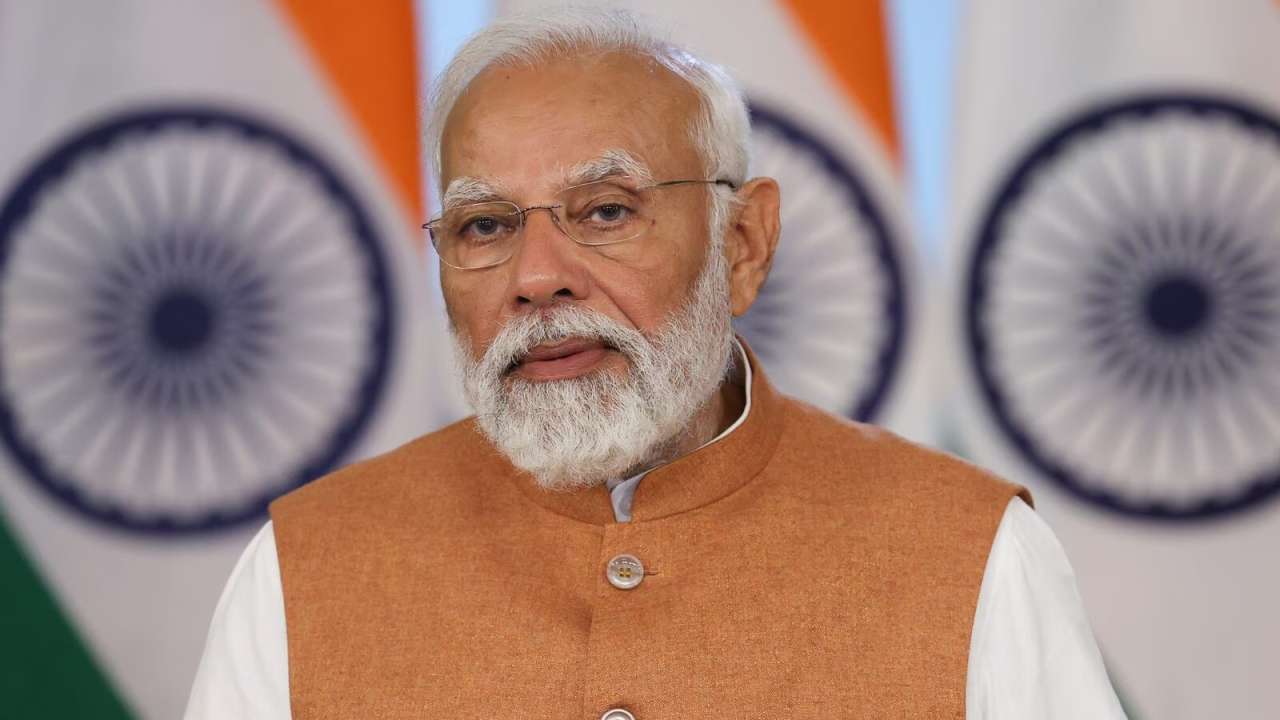
Prime Minister Narendra Modi took to social media as the second phase of voting for the Lok Sabha Elections of 2024 got underway across the country to encourage voters to cast votes in huge numbers. PM Modi emphasized in his speech the value of voting in preserving democracy and notably urged women and young people to cast votes.
Taking to social media X, formerly Twitter, PM Modi wrote, urging everyone in constituencies to participate in record numbers in today’s second phase of the Lok Sabha elections. He said our democracy is strengthened by high voter turnout. He especially urged female and youth voters to cast votes in large numbers. Your vote is your voice, he added.
It is important to remember that 88 Lok Sabha constituencies—spread among 13 states and Union Territories—are presently holding polls. Twenty seats in Kerala, fourteen in Karnataka, thirteen in Rajasthan, eight in Uttar Pradesh and Maharashtra, six in Madhya Pradesh, five in Assam and Bihar, three in Chhattisgarh and West Bengal, and one in each of Tripura, Jammu & Kashmir, and Manipur are currently up for election. Notably, the untimely death of a Bahujan Samaj Party (BSP) candidate has resulted in the Madhya Pradesh constituency of Betul being spared from voting on April 26.
Meanwhile, Chief Election Commissioner Rajiv Kumar emphasized the thorough planning that has taken place over the previous two years and reassured the public of careful security measures at every voting place. They have been preparing for the last two years, he said. At each booth, the arrangements are ready. Everything has been prepared for the voters, including fans and drinking water. Voters must turn out to cast their votes. Safety has been considered. There is zero information available anywhere regarding violence. However, there will be forces at every booth.
-
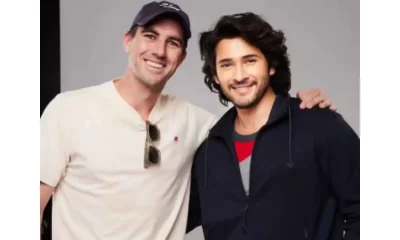
 Cricket news21 hours ago
Cricket news21 hours agoTelugu superstar Mahesh Babu meets SRH captain Pat Cummins, says it is an absolute honour
-

 Entertainment24 hours ago
Entertainment24 hours agoAamir Khan to begin shooting in Delhi for Sitaare Zameen Par next month
-
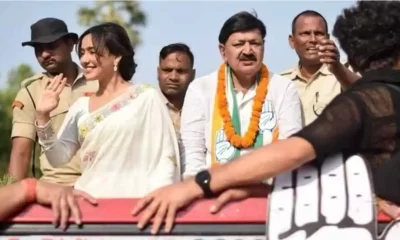
 2024 Lok Sabha Elections24 hours ago
2024 Lok Sabha Elections24 hours agoBollywood actor Neha Sharma campaigns for her father Ajit Sharma in Bhagalpur, Bihar
-
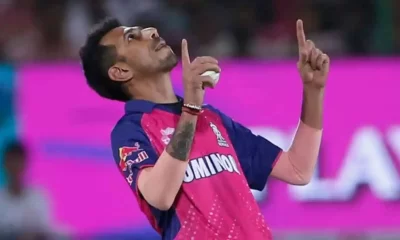
 Cricket news22 hours ago
Cricket news22 hours agoAB De Villiers criticizes RCB’s decision to let go Yuzvendra Chahal, says it was a hearbreaking moment
-
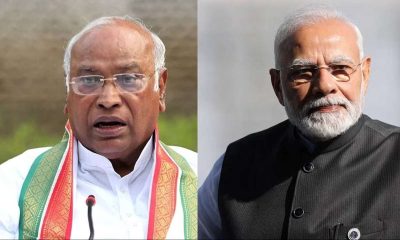
 2024 Lok Sabha Elections21 hours ago
2024 Lok Sabha Elections21 hours agoMallikarjun Kharge writes to PM Modi seeks time to explain Congress’s Nyay Patra
-

 Trending20 hours ago
Trending20 hours agoSocial media user shares video of Air India ground staff throwing expensive musical instruments, video goes viral
-
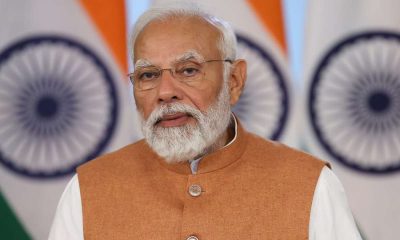
 2024 Lok Sabha Elections4 hours ago
2024 Lok Sabha Elections4 hours agoPM Modi calls for high voter turnout in second phase of Lok Sabha elections 2024, says your vote is your voice
-

 India News3 hours ago
India News3 hours agoSalman Khan house firing case: NIA interrogates arrested shooters Sagar Pal, Vicky Gupta for three hours

